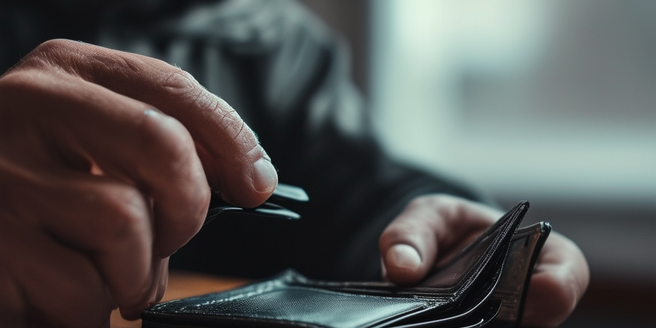Understanding the Basics of a Credit Score
A credit score, ranging from 300 to 850, is a quantified assessment of creditworthiness for lending institutions like banks and credit card companies. It’s a numeric representation showing your likelihood to repay debts, calculated from your historical financial information. Key components of this calculation include your payment history (reflecting your consistency in fulfilling credit commitments), current debts, length of credit history, and diversity of credit types such as credit cards, mortgages, and auto loans. Recent credit inquiries are also factored, as multiple applications in a short period could indicate financial difficulties. These combined elements form your credit score, which lenders use to accurately assess your creditworthiness.
How Unemployment Can Lead to Debt
Being unemployed introduces numerous financial hurdles as lacking a steady income often depletes savings and accumulates debt. This quickly becomes overwhelming as the untenable situation continues, with debt becoming increasingly difficult to manage.
In response, you might resort more to credit cards for managing daily expenses like groceries, gas, and routine costs. Such dependency can lead to a sharp rise in your overall debt, exacerbated by the traditionally high interest on credit card debts.
Alternatively, during unemployment, you might consider loans like personal loans or payday loans as viable options to handle financial obligations. While they may provide temporary relief, these options often carry high-interest rates, intensifying the vicious cycle of debt.
Therefore, during unemployment, you may find yourself turning to credit or borrowing to meet everyday expenses and financial commitments. This can lead to an escalating cycle of debt that can be incredibly challenging to break, even after securing employment.
The Direct Impact of Unemployment on Your Credit Score
While unemployment may not directly lower your credit score, the ripple effects of such a scenario can significantly decrease your rating due to the ensuing financial strain. Loss of regular income affects your ability to meet your financial obligations such as bill payment. Although job loss alone won’t harm your credit score, inability to pay bills, which are reported to credit bureaus, undoubtedly will. This process demonstrates how indirect effects of unemployment, like an accumulation of unpaid bills, can lead to a noticeable decrease in your credit score, thereby highlighting the indirect but potentially significant implications of job loss on your financial health.
Higher Risks of Late Payments During Unemployment
Unemployment can significantly increase the probability of missing scheduled payments or even defaulting on them, leading to severe financial difficulties. This situation severely impacts your credit score, primarily influenced by your payment history. A major component of this score is the consistency of payments, which, if neglected, can cause a sharp decrease in your credit score. Therefore, avoiding such a scenario wherever possible is crucial since being unemployed not only affects your current income but also has a cascading effect on your credit score.
Why Unemployment Insurance is Not Enough
Unemployment insurance serves as a safety net, providing a fraction of your income for a set period if you lose your job. This system is frequently insufficient though, as it may not cover all of your expenses, especially if you were living paycheck to paycheck. The limited budget it affords can struggle to accommodate continued costs like rent or mortgage, utilities, food, car payments, and children’s expenses, along with unexpected costs. Therefore, while unemployment insurance can alleviate some financial pressure, it may not fully satisfy the monetary needs arising from job loss.
Proactive Measures to Protect Your Credit Score During Unemployment
To safeguard your credit score during unemployment, take proactive steps including prioritizing crucial expenses like rent, groceries, and utility bills. Formulate a budget tailored for your unemployment period to help manage your finances, keeping in mind that your spending habits can directly influence your credit score. Engage in discussions with your creditors to arrange for loan modifications or deferred payments which can help avoid any negative impact on your credit score. Lastly, take advantage of assistance programs designed for individuals facing unemployment, offering services like free credit counseling, job search programs, or financial assistance. Utilizing these resources can help manage your debt effectively and thereby protect your credit score from the effects of unemployment.



